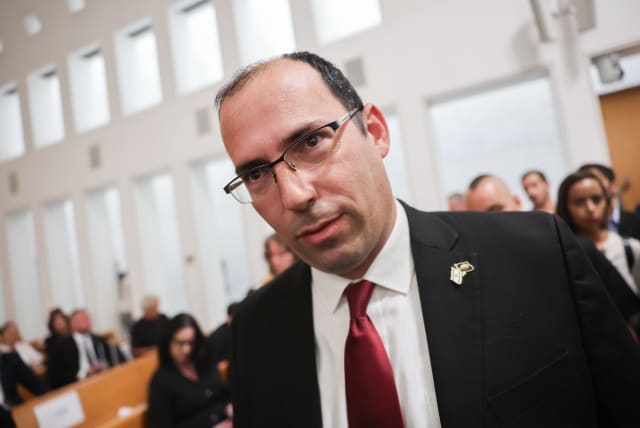Will the High Court strike down the reasonableness law? - analysis

The reasonableness law was an amendment to a basic law, which the court believes requires a high threshold for the court to nullify.
Many of the High Court justices seemed unconvinced by arguments presented to them that the reasonableness standard law was extremely damaging to democracy, during Tuesday’s hearing on the judicial reform law.
The July 24 reasonableness law was an amendment to a Basic Law, which the court believes requires a high threshold for the court to nullify.
While the striking of a Basic Law has never been done before, the 2021 ruling by the High Court on the Nation-State Law holds that Israel’s quasi-constitutional Basic Laws can be struck down if the law was an extreme one that violates Israel’s Jewish and democratic values.
Justices such as Anat Baron repeatedly asked for petitioners to demonstrate how the court would damage Israel’s democracy, often returning to the questioning and repeating it with the note that it hasn’t been yet answered.
Court President Esther Hayut pushed Attorney-General Office’s representative Aner Helman to demonstrate the extreme nature of the law, saying it was not every day that a Basic Law was struck down. Helman argued that the legislation would damage rule of law, and allow political gatekeepers to be replaced without explanation before elections, challenging the integrity of votes.
Reviewing the reasonableness law
Eliad Shraga, head of the Movement for Quality Government in Israel, argued that the reasonableness law was part of a broader agenda that aimed to ruing the judiciary and Israel’s liberal democratic order. Many of the petitions broadened the scope of the appeals to the entire judicial reform, to increase the chance of the court striking it down as a threat to the system. The justices did not seem keen on this argument either.
Justice Noam Sohlberg asked for specific examples of how the laws disrupted Israel’s democratic system, and he and Hayut said this was beyond the scope of the hearing, and that they were only reviewing the reasonableness law.
When attorney Gilad Sher, representing the Civil Democratic Movement, claimed that the reasonableness standard law was part of a package of 225 coup d’etat laws, Hayut criticized his argument as holding that “if you don’t do as we say, the sky will fall.”
Hayut and many of the other justices expressed that removing administrative judicial review and damaging the requirement for officials to act reasonably as a poor outcome, and that the version passed into law went too far to address alleged problems. Justice Yitzhak Amit joked that government attorney Ilan Bombach’s argument defending the law could be summarized as being “terrible, but it could have been more terrible.”
Yet terrible law isn’t necessarily an extreme law that violates democracy. Bad laws are passed all the time, and can be addressed in ways besides striking them down, such as through interpretation that reads them down – though Hayut expressed criticism of this idea.
Other options include sending the law back for re-legislation. Both are drastic moves, but far less so than inviting a constitutional crisis and striking down a Basic Law for the first time in history when it isn’t clear if it extremely damages democracy.
The court has historically been averse to striking down Basic Laws, preferring other solutions, and with justices like Sohlberg and David Mintz criticizing judicial review of Basic Laws, it seems most likely that this trend will continue.
Jerusalem Post Store
`; document.getElementById("linkPremium").innerHTML = cont; var divWithLink = document.getElementById("premium-link"); if (divWithLink !== null && divWithLink !== 'undefined') { divWithLink.style.border = "solid 1px #cb0f3e"; divWithLink.style.textAlign = "center"; divWithLink.style.marginBottom = "15px"; divWithLink.style.marginTop = "15px"; divWithLink.style.width = "100%"; divWithLink.style.backgroundColor = "#122952"; divWithLink.style.color = "#ffffff"; divWithLink.style.lineHeight = "1.5"; } } (function (v, i) { });

